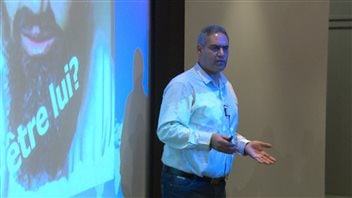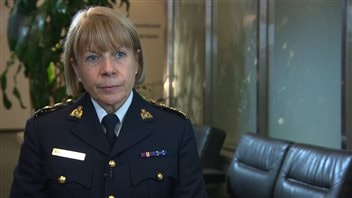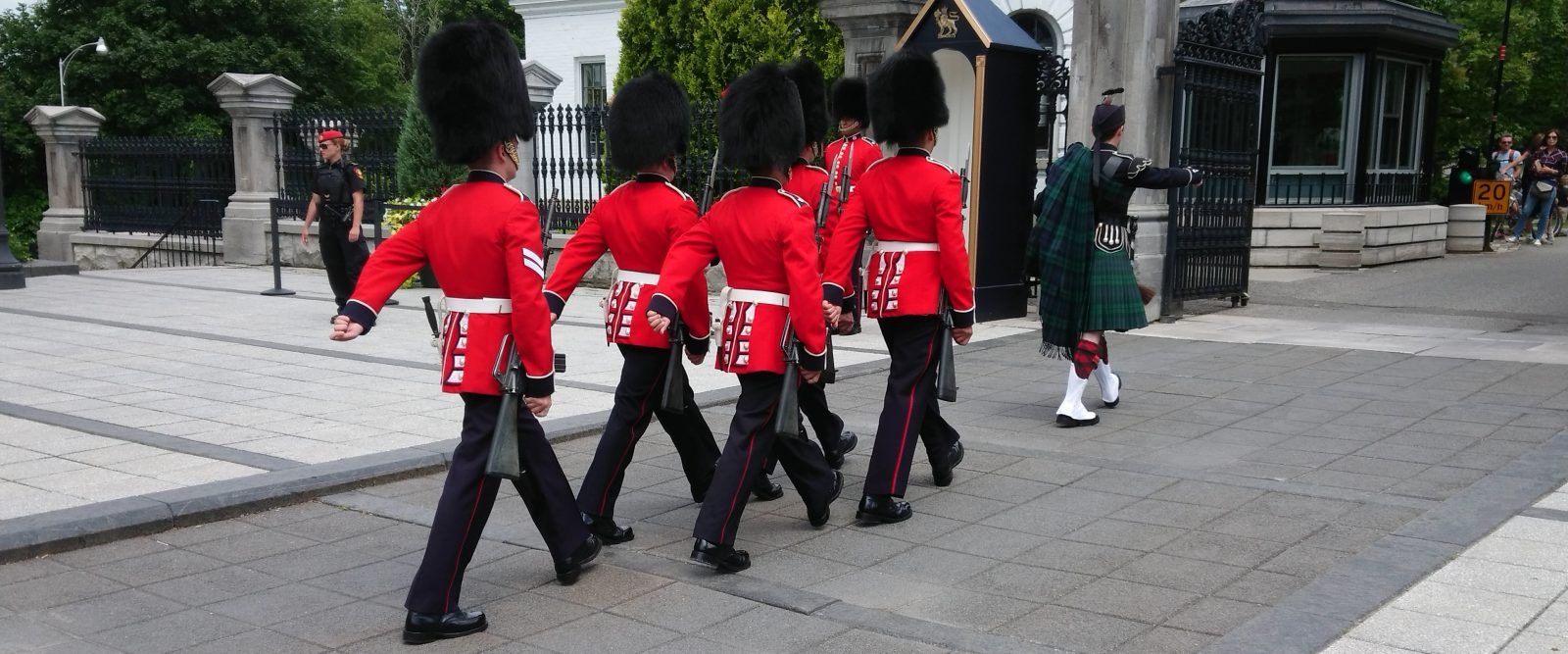(The importance of this article and video is difficult to pin down because it is difficult to ascertain the actual aspect of it which is important. Is it the political correctness used which makes it an order of magnitude more difficult for law enforcement to actually identify a terror threat? Or is it the general weakness of the media on this issue, or any number of other problems I see with this report.)
An original translation by C.B. Sashenka (With much thanks)
From Radio Canada:
Exclusive – “The terrorists do not come with a flash on the head. ” At the front of the room, a counter-terrorism specialist officer repeats this sentence to make it clear to his colleagues that the typical profile of a terrorist does not exist.
Approximately 70 agents from across Quebec attend this three-day training session organized by the Royal Canadian Mounted Police (RCMP). Radio-Canada had exclusive access to one of the sessions.
Text of Mylène Crête
These police officers must understand the terrorist threat in order to better counter it, but the enemy is difficult to define. On his screen, Jamel Ouici scrolls through photos of people who committed attacks or who threatened to commit some.
“Denis Marc Furrier, not Mohammed Abdul Jabbar. This is a Quebecer”, he points out.
This photo is that of a Quebecer who was sentenced to nine-months of imprisonment in 2013 after having written some alarming lines on his Facebook page. By showing this photo, the trainer, of Algerian origin, wants to do away with stereotypes.
“There is no typical case. There is no profile. The beard means nothing. There are bikers who have beards.” – Sergeant Hakim Bellal, Head of the RCMP National Security Community Outreach program
(Listen to the report of Manon Globensky, broadcast on Désautels on Sunday)
The RCMP, the Sûreté du Québec (Quebec Provincial Police) and the Montreal Police Service offer these training workshops to police forces of the entire province since 2010. The goal of the training is to equip patrol officers and investigators so that they can identify suspicious behavior that can be associated with terrorism.
 Anti-terrorism training aims at wiping out stereotypes
Anti-terrorism training aims at wiping out stereotypes
The phenomenon is difficult to penetrate because the threat is not always from an organized group. The attacks of Saint-Jean-Sur-Richelieu and of Ottawa showed that individuals could act alone and in an unpredictable way. “There is no police organization or safety organization in the world that can say that it’s one step ahead of terrorism”, the trainer points out.
“It’s much more difficult to detect because it’s done in the privacy of their homes, or in cafés, on the Internet, and it’s necessary to know that these people are in the process of taking steps to self-radicalize to violence, and to self-indoctrinate”, RCMP inspector Martine Fontaine recognizes, who heads National Security for the RCMP in Quebec. Unlike a simple crime, a terrorist attack is motivated by a political, religious or social ideology.
 RCMP Inspector Martine Fontaine, Head of National Security for RCMP in Quebec
RCMP Inspector Martine Fontaine, Head of National Security for RCMP in Quebec
“The best weapon against terrorism is Intelligence”, says Jamel Ouici to his captivated audience. The best tool: the note-book. Police officers must be on the lookout in their investigations for any sign than an individual has been self-radicalized, and to transmit this information to counter-terrorism divisions to validate it. No stone should be left unturned.
“As a patrol officer, we can find those signs daily in any intervention. » – Agent Hugues Beauchemin-Lemyre of the Saint-Jean-Sur-Richelieu Police Service
Community Links
Links with the community in which these police officers work are also of primary importance. Parents and friends are often the first to notice the behavior transformation of a self-radicalized individual. “Isolation, change of friends, more music, they don’t want to drink in the house”, lists agent Martine Fontaine, referring to radical Islamization.
The goal of training is to get ahead of the terrorist threat, but outreach work (to raise awareness) with citizens remains huge. The RCMP will reveal its community-based approach to radicalization by the end of the year. For the police force, the attacks on Saint-Jean-Sur-Richelieu and Ottawa make this educational work even more important.
According to the reports of Daniel Thibeault and Manon Globensky

Spotting terrorists among the Moslems is going to be incredibly hard, after all the difference between a practicing Moslem and a Jihadists is very small and hard to spot.
The ones they might catch are converts from kafir families. Their parents might turn the kids in to save lives.
Those who aren’t so PC they are incapable of thinking.
That’s true too.
You hear them say, “He was a drop-out, then found Islam and started cleaning up his act…”
The lack of intelligence in that statement is sickening.
“He was a drop-out, then found Islam and started cleaning up his act…”
This is the statement I was talking about
Ask an Imam! Do more outreach! Everyone knows you can always count on Imams to hand fellow Muslims over to the kafir police. Imams cannot lie. They are men of faith.
The Jerusalem murders didn’t happen in a vacuum
http://www.jewishworldreview.com/1114/palestinian_violence_triggers.php3
One way to make the Jihadis come out from within the community, is to wave a red flag( metaphorically)
No profile for a terrorist? Extremely difficult to find? What utter rubbish! Those cops are just trying to make their job look harder than it is.
It’s simple. They should be looking for young, serious-looking, predominantly male Muslims who spend a lot of time at the Mosque and who look like extras from “The Planet of the Apes”. Put hi-tech surveillance equipment in every square inch of every mosque and Muslim center and Muslim bookstore and coffee shop and let them hang themselves with their own words, unless they’re not Jihadis, of course, which the surveillance would also prove. Photograph extensively at a pro-Palestine rally then open huge dossiers on every single person in the crowd. Hire agents to join Mosques and cleverly infiltrate themselves into whatever terrorist activities they can find there.
Any young guy with a beard who says “Allahu Akbar” as he watches infidels blow up, is one of them. Anybody who marches along chanting, “From the river to the sea, Palestine will be free”, is either a simple Communist or a terrorist-supporter – or both. You can count on that. All in all, I would think that catching terrorists in Canada would be an expensive but simple proposition if they could just get their heads out of their own behinds… 🙂
Oh, and if the Muslims complain about their human rights being violated, simply say, “There’s a war going on, Pal! Ain’t ya heard?”, then politely point out to them that it is not our fault that they choose to follow a religion that commands its followers to wage war on everyone who is not exactly like them. If they want to stop being feared and mistrusted, they should drop the death-cult and join the human race…
Sounds like a plan to me, Chris
Totally agree with the above Any worthwhile training course would start by reminding their listeners that not every terrorist is a Muslim but most terrorists are Muslim and , resources will then be directed where they are most needed.
Don’t use logic, it confuses the left.